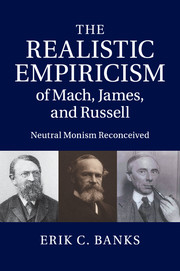Refine search
Actions for selected content:
13588 results in History of science and technology
CHAP. X - REPAIRING ROADS
-
- Book:
- A Treatise on Roads
- Published online:
- 05 June 2015
- Print publication:
- 25 September 2014, pp 243-252
-
- Chapter
- Export citation
APPENDIX, NO. I - Description of Mr. Macneill's Road Indicator
- from APPENDIX
-
- Book:
- A Treatise on Roads
- Published online:
- 05 June 2015
- Print publication:
- 25 September 2014, pp 321-347
-
- Chapter
- Export citation
CHAP. III - FORMING A ROAD
-
- Book:
- A Treatise on Roads
- Published online:
- 05 June 2015
- Print publication:
- 25 September 2014, pp 82-93
-
- Chapter
- Export citation
NOTE C
- from NOTES
-
- Book:
- A Treatise on Roads
- Published online:
- 05 June 2015
- Print publication:
- 25 September 2014, pp 458-460
-
- Chapter
- Export citation
PREFACE TO THE SECOND EDITION
-
- Book:
- A Treatise on Roads
- Published online:
- 05 June 2015
- Print publication:
- 25 September 2014, pp iii-iv
-
- Chapter
- Export citation
APPENDIX
-
- Book:
- A Treatise on Roads
- Published online:
- 05 June 2015
- Print publication:
- 25 September 2014, pp -
-
- Chapter
- Export citation
CHAP. VIII - MANAGEMENT OF ROAD WORKS
-
- Book:
- A Treatise on Roads
- Published online:
- 05 June 2015
- Print publication:
- 25 September 2014, pp 206-233
-
- Chapter
- Export citation

The Realistic Empiricism of Mach, James, and Russell
- Neutral Monism Reconceived
-
- Published online:
- 05 September 2014
- Print publication:
- 28 August 2014
Contents
-
- Book:
- The Realistic Empiricism of Mach, James, and Russell
- Published online:
- 05 September 2014
- Print publication:
- 28 August 2014, pp v-v
-
- Chapter
- Export citation
The realistic empiricism of Mach, James, and Russell - Half title page
-
- Book:
- The Realistic Empiricism of Mach, James, and Russell
- Published online:
- 05 September 2014
- Print publication:
- 28 August 2014, pp i-ii
-
- Chapter
- Export citation
Chapter 6 - The problem of extension: a constructivist program
-
- Book:
- The Realistic Empiricism of Mach, James, and Russell
- Published online:
- 05 September 2014
- Print publication:
- 28 August 2014, pp 169-200
-
- Chapter
- Export citation
The realistic empiricism of Mach, James, and Russell - Title page
-
-
- Book:
- The Realistic Empiricism of Mach, James, and Russell
- Published online:
- 05 September 2014
- Print publication:
- 28 August 2014, pp iii-iii
-
- Chapter
- Export citation
Chapter 5 - Enhanced physicalism
-
- Book:
- The Realistic Empiricism of Mach, James, and Russell
- Published online:
- 05 September 2014
- Print publication:
- 28 August 2014, pp 142-168
-
- Chapter
- Export citation
References
-
- Book:
- The Realistic Empiricism of Mach, James, and Russell
- Published online:
- 05 September 2014
- Print publication:
- 28 August 2014, pp 206-213
-
- Chapter
- Export citation
Appendix: - An outline of realistic empiricism
-
- Book:
- The Realistic Empiricism of Mach, James, and Russell
- Published online:
- 05 September 2014
- Print publication:
- 28 August 2014, pp 201-205
-
- Chapter
- Export citation
Copyright page
-
- Book:
- The Realistic Empiricism of Mach, James, and Russell
- Published online:
- 05 September 2014
- Print publication:
- 28 August 2014, pp iv-iv
-
- Chapter
- Export citation
Chapter 4 - Russell’s neutral monism: 1919–1927
-
- Book:
- The Realistic Empiricism of Mach, James, and Russell
- Published online:
- 05 September 2014
- Print publication:
- 28 August 2014, pp 114-141
-
- Chapter
- Export citation
Introduction: - An overview of realistic empiricism
-
- Book:
- The Realistic Empiricism of Mach, James, and Russell
- Published online:
- 05 September 2014
- Print publication:
- 28 August 2014, pp 1-29
-
- Chapter
- Export citation
Preface and acknowledgments
-
- Book:
- The Realistic Empiricism of Mach, James, and Russell
- Published online:
- 05 September 2014
- Print publication:
- 28 August 2014, pp vii-viii
-
- Chapter
- Export citation
Index
-
- Book:
- The Realistic Empiricism of Mach, James, and Russell
- Published online:
- 05 September 2014
- Print publication:
- 28 August 2014, pp 214-217
-
- Chapter
- Export citation
